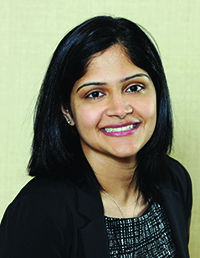Spring 2020 (Volume 30, Number 1)
Transitioning Into Practice
By Thanu Ruban, MD, FRCPC
Download PDF

Medical training prepares us well to be medical experts. Transition into practice, however, can be challenging, particularly for those considering a community practice. This was the case for me when I completed fellowship and decided to become a community rheumatologist. There were a lot of options to decide amongst, including location (urban vs. suburban vs. rural), type of practice (solo practice vs. group vs. multi-disciplinary), hospital-based vs. private practice vs. mixed practice.
Choosing the right type of practice for me required a multi-faceted approach. I opted to start by locuming at hospitals as well as at private community practices. For hospital locums, I spoke to colleagues who were a few years ahead of me to see if there were any hospital-based job opportunities. I also reached out to my attending staff during training to connect me with rheumatologists at hospitals I was interested in working at. I found various helpful online resources from the Ontario Medical Association (OMA) as well as HealthForce Ontario (HFO) to help with this process. Locuming at various hospitals was an excellent way to observe the work environment and culture, and staff morale as well as patient demographics. It was also an excellent opportunity to meet other specialists/internists in the areas that I had short-listed for future practice. Networking helped with establishing possible leads for shared office space, office staffing needs, as well as creating an early referral base. With the help of the locuming process, I was able to prioritize interests/must-haves/goals of my future practice. In the end, I chose a mix of solo-private practice with hospital privileges and academic affiliation as the best fit for me.
The challenges of starting out in practice are faced by most, if not all, grads. With this in mind, I knew more could be done to engage and assist these individuals. I wanted to be able to provide new grads with a staple of resources that were not available when I was starting out in my practice. With the Ontario Rheumatology Association (ORA), I created the Emerging Rheumatologists of Ontario (ERO) Committee in 2018. I was fortunate enough to work with a number of enthusiastic early and seasoned rheumatologists. The ERO Committee has brought together rheumatology fellows and early career rheumatologists for networking events with more senior colleagues as well as practice management workshops. With the help of a hardworking sub-committee, we were able to create a rheumatology specific “Transition to Practice” handbook, with commonly asked topics and questions available online. This handbook is complemented by a Peer Mentor Forum, a secure discussion board for ORA members. Early career rheumatologists and trainees can use this forum to review archived conversations of topics of interest or post new queries for review by their colleagues. The ERO committee, co-chaired by myself and Dr. Yan Yeung, continue to work on new initiatives to engage and support early career rheumatologists in Ontario who are starting out and building their practice.
In looking back at my transition to practice, certainly having some of the resources above would have been an asset. I hope that new graduates and early career rheumatologists can take advantage of these resources that have been developed to help with a smooth transition into practice.
Thanu Ruban, MD, FRCPC
Consultant Rheumatologist,
Markham Stouffville Hospital
Markham, Ontario
|
